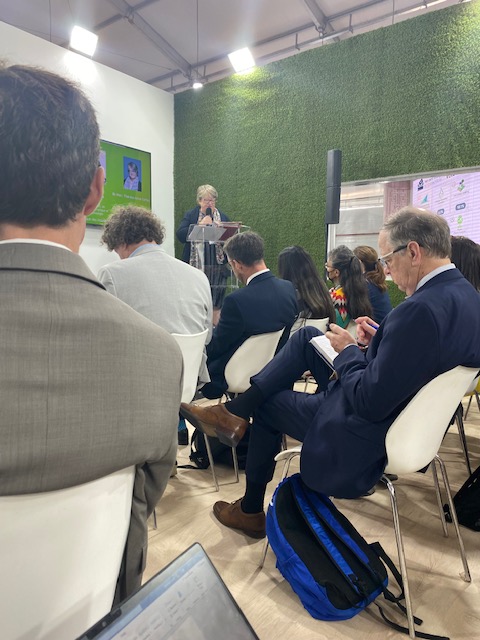
A carbon market system that allows secrecy, downgraded the rights of indigenous peoples, and will permit fake carbon credits to potentially be counted twice.
*BUT* thanks to the UN High Level Expert Group on Net Zero there will be more scrutiny than ever on carbon markets. The dodgy system set up here won't be given an easy ride, that's for sure.
*AND* the language sent a very clear signal that these credits should not be used in this way, meaning any company might face real reputational risks if it did so. What company would even want to?
This is a silver lining - it may drive finance to climate action but prevent carbon offsetting displacing real climate action.
We may yet see emissions driven down and temperatures limited by this mechanism.
We may yet see emissions driven down and temperatures limited by this mechanism.
Let's stand the #Article6 outcome next to the other bits of #COP27: there is significant real-world momentum on cutting emissions (more than the talks actually reflect), and the space for dodgy carbon credits has narrowed, ever so slightly.
#Article6 may play a role in helping drive climate action - we'll see next year as things that were kicked into long grass come back.
In the system allowing trading country-country, "confidentiality" remains, meaning any information about credits can be hidden.
In the system that allows countries to sell emissions reductions to companies there is now to be a consultation on views on how emissions removals can be used. Removals mean for example forests that absorb carbon or technologies that suck it out of the atmosphere.
But that consultation no longer asks for views on the human rights impacts on indigenous peoples of using land that way.
"Mitigation contribution" emissions cuts are clearly only intended to be a way for companies to finance climate action - but they shouldn't be using them as an offset. The UN can't stop them from doing so, but it does make it reputationally toxic.
The outcome kicks many things down the road to 2023 and 2024 - we shouldn't expect the market for countries to sell emissions cuts to companies to become a reality any time soon.
We may still be discussing all these issues in Dubai #COP28 next year.
We may still be discussing all these issues in Dubai #COP28 next year.
With huge thanks @CarbonMrktWatch and @DrSimEvans (and others) for insight/advice over the last 2 weeks.
But views here entirely my own, I should add.
• • •
Missing some Tweet in this thread? You can try to
force a refresh





